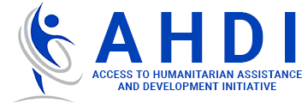Today marks the annual ‘’World Toilet Day’’ and the theme for this year is ‘’Nature-based Solution’’. Nature-based solution is the process of using nature to tackle environmental challenges ranging from human health, water pollution, water security, disaster risks among others.
A survey conducted by UNICEF reported that about 120 million Nigerians still lack access to improved sanitation facilities, thereby exposing them to public health hazards. Also, the gap between knowledge and attitude in hygiene still exists.
Promoting the use of toilet with adequate facilities is key to improving sanitation for all. But how prepared is Nigeria and Africa in developing policies and strategies that can be translated into measurable actions that will enhance the culture of good sanitation into our institutions and communities? Research outcomes have shown that Nigeria and Africa as a whole is behind and at risk of the negative impacts of poor sanitation, it is time to take action that will prevent the escalation of the associated hazards of poor sanitation to human life and dignity.
Sustainable Development Goal 6 aims to achieve sanitation for all and end open defecation. World Toilet Day exists to inform, engage and inspire people to take action toward achieving this goal.
Nigeria is currently rated as the country with the largest number of people that defecate in the open in Africa and only second to India globally. This has led to the Federal Government declaring an emergency on sanitation in Nigeria to curb the dangerous impact of open defecation on health status of everyone.
The outcome of AHDI’s recent visits to public primary schools in the FCT also shows that there is a lot of work to be done in order to have an effective and evidence-based sanitation strategy that is inclusive of our public primary schools . The children in the schools visited had no access to quality toilets and had to defecate in the open; they also lack access to water and proper sanitation thus, exposing the pupils to innumerable health hazards such as diarrhea, cholera, dysentery among others.
No doubt, the Federal Government of Nigeria as well as its development partners and sector actors are aware of the enormous challenges posed by poor sanitation which has led to initiation and activation of several intervention programmes. These programes and strategies are rolled out to help ensure that every Nigerian have access to basic, functional and accessible sanitation services. The hope is that these programmes would be closely monitored to ensure that they achieve their objectives and not end up to be strategies and programmes that would not yield tangible results or change the orientation of everyone positively. All attention, supports and investments must be increased substantially in order to help the nation be on track in achieving the SDG target in this regard.
On the part of AHDI, today gives us another opportunity to get back to our reflection and innovation hub, reenergize and reawaken our efforts as active sector players– all of us have responsibility to do something to ensure availability of sustainable and accessible sanitation services for all. We must continue to communicate and create awareness on the importance of good hygiene practices and proper sanitation.
To support the achievement of SDG 6 targets especially in schools, AHDI’s “School Infrastructure Improvement Programme” (SIIP) is designed and activated to focus on improving the infrastructural facilities of public primary schools by enhancing and renovating broken down physical and essential infrastructures which includes toilets and other sanitation services. We believe that availability of accessible sanitation services enhance good and conducive learning environment for boys and girls in our schools.
For more enquiries about AHDI’s School Infrastructural Improvement Programme (SIIP) visit; www.ahdinigeria.org/grants
